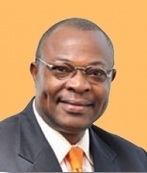
THE National Social Security Authority (NSSA) last year wrote off US$18,1 million after operating expenses shot up by 43% to US$43,5 million, following actuarial advice given to the institution. REPORT BY KUDZAI CHIMHANGWA NSSA general manager, James Matiza, attributed the huge rise in expenses to once-off activities.
These include the computerisation project costs write-off of US$759 000, contractual damages following an arbitration award on the computerisation project amounting to US$1,285 million and debtors provision on money market investments totalling US$16,1 million.
“The total write-off of US$18,153 million impacted negatively on the bottom line, coupled with the low performance on contributions and premiums,” he said. “However, it has to be noted that the US$16,1 million debtors provision on money market investments can still be recovered in full, as there is security to this effect.”
Matiza said although the money had been written off for accounting purposes, the majority of it would come back to the institution.
Pursuant to its investment drive, NSSA had US$15 million deposited with Interfin, which went under curatorship for abuse of depositors’ funds and an additional US$800 000 with Genesis Bank, which also surrendered its licence earlier this year.
The bank had failed to raise the central bank’s minimum capital requirement of US$12,5 million.
“We agreed to write-off exposure to these banks, thereby making a provision of US$16,1 million. However, we had security against those deposits and there is a high likelihood of us recovering the money,” said Matiza.
The authority already holds US$3 million worth of Interfin’s bonds.
- Chamisa under fire over US$120K donation
- Mavhunga puts DeMbare into Chibuku quarterfinals
- Pension funds bet on Cabora Bassa oilfields
- Councils defy govt fire tender directive
Keep Reading
NSSA also holds investment in AICO at 22%, 26,4% in FBC Holdings, 40% in FBC Building Society, 28% in hospitality concern RTG, 24,1% in StarAfrica and 37,9% in ZB Bank.
The authority, which is mandated by government to administer social security schemes in Zimbabwe, has over the years been criticised over apparent lack of due diligence in risk and protection measures, following the inception of the multiple currency regime in 2009.
The institution is presently exposed to the tune of US$140 million to indigenous-owned banks spread according to the size of individual banks’ balance sheets.
Matiza said the idea behind injecting money in local banks was to assist them to lend money out to the productive sectors, while the institution gets a reasonable return on investment. NSSA pursues investments with public interest: Chagonda
NSSA board chairman, Innocent Chagonda, said the authority would pursue investments that were in the interests of the public.
“We had to liaise with the RBZ (Reserve Bank of Zimbabwe) to find out which banks were sufficiently capitalised before depositing money. Those are the banks we would deal with. We would also rely on audits done by auditors for these financial institutions,” he said.
“The StarAfrica deal came through to us. It was a decision (to invest in StarAfrica) made by the previous board. Although the share price went down, we want to ensure that it comes up again. our investment is long-term and we will make money out of it,” he said.
The authority has significant exposure to the money market and shareholding in various investment vehicles on the market.
In its financials for the year 2011, investments income went up 21% from US$19,7 million in 2010 to US$23,2 million in 2011.
The income was mainly made up of money market interest and rental income, as equities remained subdued.











